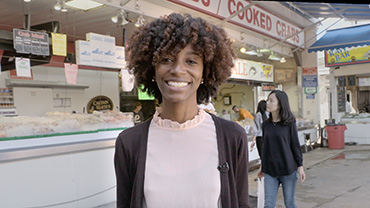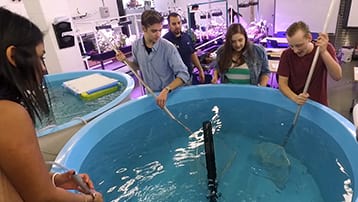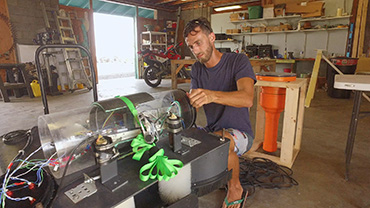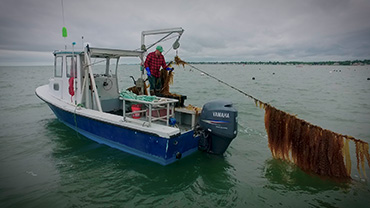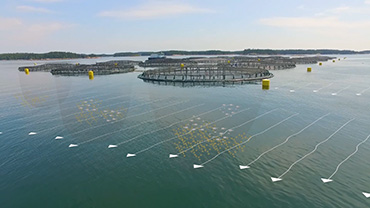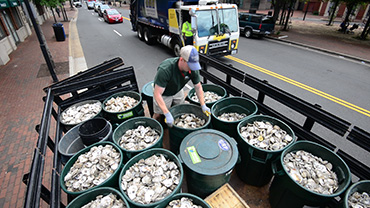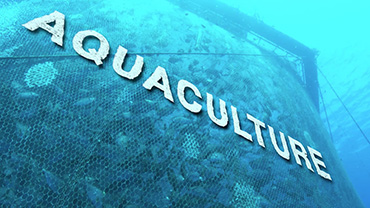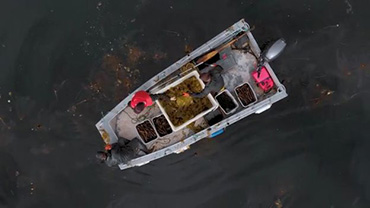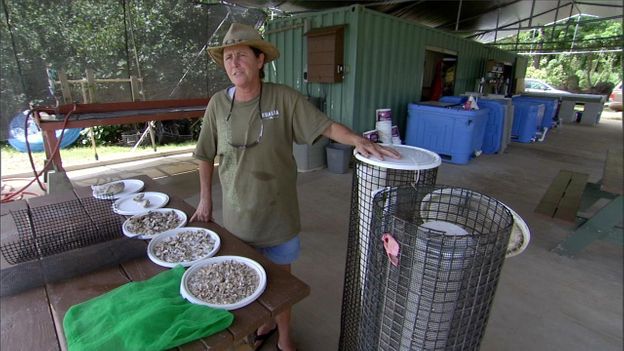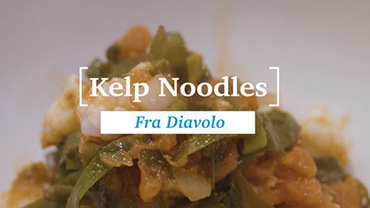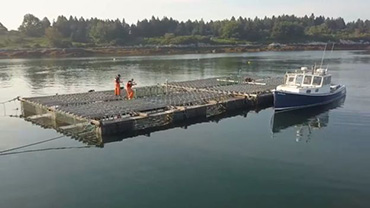Transcript
NARRATOR: For generations in Southeastern Connecticut, fishing was a way of life for many. But for years, the industry has been shrinking. The fishers who remain are older now, and many think that fewer young people want to depend on a difficult and uncertain way of life.
But these 17- and 18-year-olds are working with fish every day. Not only that, they’re learning a business on top of the standard curriculum and making money for their school, and the enthusiasm is through the roof.
Teacher: Did you get him?
Student: Yeah!
[All laughing]
Eric Litvinoff: I never expected kids to be so engaged with aquaculture. Every day I'm surprised about what they want to
learn, the questions that they ask, and their real passion and engagement for this industry.
Narrator: These students go to Marine Science Magnet High School, in Groton, Connecticut. Every day students get fired up as they apply science skills to manage an aquaculture operation.
Kwadwo Nsiah: The commitment I have to this school - I travel almost 45 minutes every day.But I also come in on the weekends, and I do work a full-time job in addition to that, but I know that if our director of aquaculture were to call me and say, hey, we have a problem in the lab, he knows that I would drop whatever I'm doing and I would come and help him.
What I'm thinking is we should get some of that corrugated PVC that we have, and we'll just like, tie it all together, and poke holes so we can get adequate flow in the water, what do you guys think about that?
Student: Yeah, sure.
Student: They'll like having a little more room to
live in there, too.
Nsiah: One of the things that I love the most about this is that students take ownership in that lab. We're the ones that are maintaining it, we’re the one who are spending the late nights here with the teachers, and testing water quality. And it really provides us that stake.
Narrator: Besides ownership of the lab, students also get real world business training -
and both the students and the school reap the reward.
Litvinoff: Kids always learn about math and they always learn about reading and writing and they go, "Why do I have to know how to do this?" We learn about tank volumes, and water flow,
and flow rate, and size of fish, and those are all geometric problems that we have to learn on the fly, and then they start doing it and they go, "Oh my God, I'm doing math!" Like, "I never really thought that was going to happen."
Many of the fish that we grow in the aquaculture lab are food fish - fish that we eat every day. All of the students learn every aspect of that business. How much do the fish need to grow? How much does the food cost? How long is it going to take? And a lot of those fish will actually be harvested in a few months, sold to a local wholesaler, and then those fish will end up on somebody's dinner plate. All of the money that's made from that, goes right back into the school to buy the next batch of fish, next batch of food, next batch of equipment.
Narrator: There is even a partnership with the Mystic Aquarium to raise profitable aquarium fish.
Dr. Paul Anderson: Marine ornamental fish can be wildly profitable, and much more so than food fish. So there's a real opportunity there, and an expressed desire by the marine aquarium industry to source aquacultured fish, but there's not enough out there yet. So that's what we're working on trying to empower, to provide a sustainable source that takes
a little bit of fishing pressure off of wild caught fish.
Narrator: Ever since its founding, Marine Science has ranked in the very top schools in the state. And 99 percent of graduates have gone on to a 2- or 4-year university.
Litvinoff: I see aquaculture expanding greatly in the next 20 or 30 years. Meaning, there's gonna be a ton of jobs available and opportunities available for students and workers of all kinds.
All my students, they may or may not want to go into aquaculture, and that's okay, but every single student that leaves the Marine Science Magnet High School is an ambassador and a steward of the ocean, and they promote that message out to their family, their friends, and everybody they meet.
Nsiah: There are so many things that the ocean gives us, but there's also so many things that we take from the ocean. So we have to come up with something thatwill supplement taking fish out of the ocean for years to come. We’ve spent four years learning about it. We know the positives; we know the negatives, but we also know the big things that aquaculture can do.
So, if aquaculture were to become big, I wouldn't be surprised if that was a Marine Science student leading that charge.
 An official website of the United States government.
Here's how you know we're official.
An official website of the United States government.
Here's how you know we're official.

